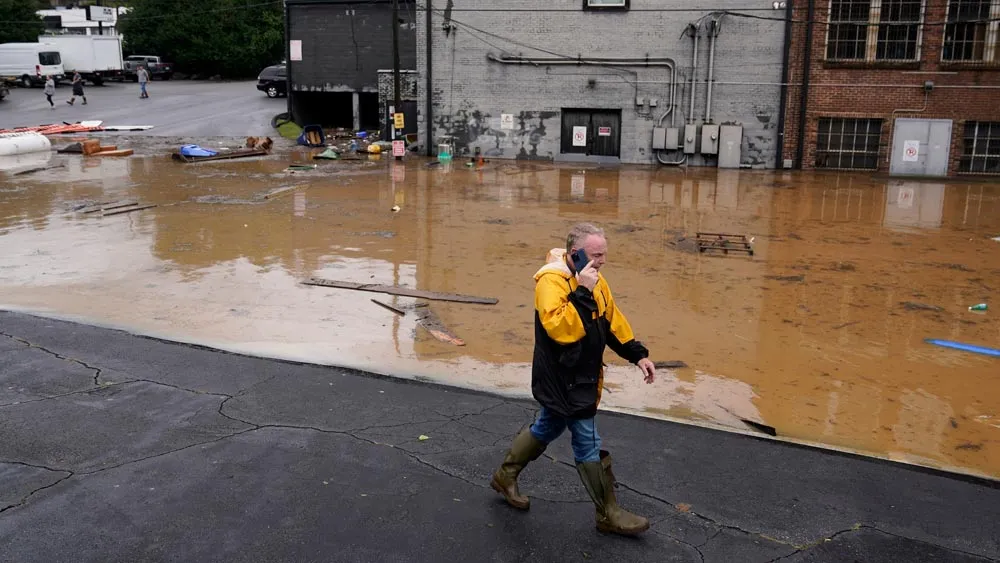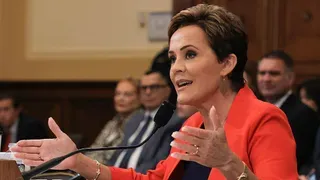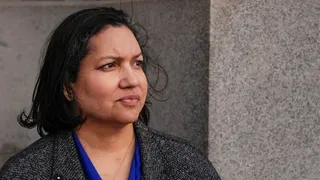August 19, 2011
Married Gay Calif. Man Still Faces Possible Deportation
Megan Barnes READ TIME: 3 MIN.
A San Francisco man could face deportation back to his native Australia in a week if he is unable to appeal a federal ruling that denied him permanent residency as the spouse of an American citizen.
Anthony John Makk is the primary caretaker of Bradford Wells, who lives with AIDS. The two men have lived in San Francisco for almost 20 years. And despite being legally wed in Massachusetts in 2004, Makk was denied permanent residency with his husband's sponsorship because "for a relationship to qualify as a marriage for purposes of federal law, one partner must be a man and the other a woman."
Although the Obama administration is no longer defending the Defense of Marriage Act in federal court, many same-sex couples have found themselves in similar predicaments. Some have successfully had their cases put on hold, postponing deportation proceedings.
With such high stakes, Makk hopes to do just that.
"The Department of Homeland Security does have the power to reverse the denial that Anthony received and to simply hold his application until the court and congress settle the fate of DOMA," said Immigration Equality spokesperson Steve Ralls.
Makk meets several criteria outlined in a June memo for Immigration Customs Enforcement agents to take into consideration: he is the spouse of an American citizen and the caretaker of one suffering from a severe illness, to name a few.
"We're simply asking the administration to abide by the rules that they have already acknowledged exist," said Ralls.
Many are urging Homeland Security Secretary Janet Napolitano and President Barack Obama to intervene-the Department of Homeland Security announced on Thursday, Aug. 18, that the agency would set aside low priority deportation cases against undocumented immigrants without criminal records and whom do not pose a risk to national security. A senior administration official said prosecutorial discretion would apply to same-sex bi-national couples. Immigration Equality has an online petition that goes directly to the White House.
"They have a couple of options if a motion to reconsider is not successful, but I think it's important to underscore none of those options would give Anthony legal status in the United States," said Ralls. "So that is why the intervention on behalf of the administration is so critical."
Immigration Equality founder and attorney Lavi Soloway said the case is an opportunity for the Obama administration to institute an abeyance policy for all bi-national couples. "In other words, to direct the Department of Homeland Security to hold any further decision on their case in abeyance so that [Makk] does not become vulnerable to deportation," he said.
Soloway is representing Violeta and Sujey Pando, a married lesbian couple from Denver who is scheduled to go before a judge later on Friday, Aug. 19, in a last attempt to prevent Sujey Pando, an undocumented immigrant from Mexico who endured brutal harassment, from being deported. The women have been in deportation proceedings for years.
Soloway will urge the judge to reschedule the case so that additional legal arguments can be made-arguments based on developments that have happened since the Pandos' last time before a judge in January. These include the memo detailing ICE guidelines for considering similar case and Attorney General Eric Holder's intervention in the case of a bi-national same-sex couple in New Jersey in May.
"We've have had a number of successes and we do think this effort we've made to have the government exercise discretion in what we call the DOMA deportations should serve as an example for the administration of how it can do the same thing for couples who are not facing deportation, but who are filing cases administratively and looking for an abeyance policy to protect them," said Soloway.
Ralls said that technicalities aside, the cases are ultimately about families.
"It's simply wrong to use a law that the administration recognizes is unconstitutional to tear families apart and that is literally what's happening."
Megan Barnes is a freelance journalist in Los Angeles. She regularly contributes to EDGE, San Pedro Today and was a founding editor of alternative UCSB newspaper The Bottom Line. More of her work can be found at www.megbarnes.com




